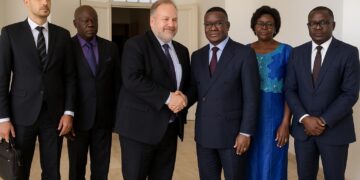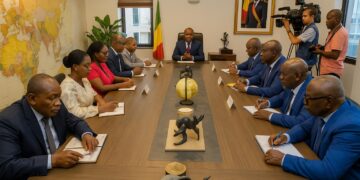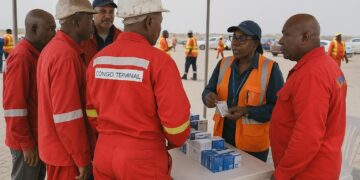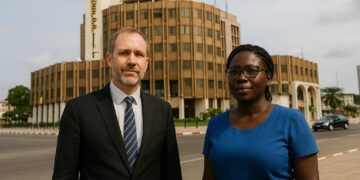Upholding accuracy, credibility, and accountability in economic journalism
At CongoInvestor.com, we recognize that trust is our most valuable currency. In a media environment increasingly affected by misinformation, we are committed to delivering factual, verifiable, and balanced reporting on the Republic of the Congo’s economy and its global connections.
This Fact-Checking Policy outlines the standards and procedures we follow to ensure that the content we publish is accurate, transparent, and accountable to the public.
1. Our Editorial Promise
We are committed to the following core principles:
- Accuracy before speed – We prioritize getting the facts right over publishing first.
- Transparency – We clearly attribute sources and methodologies.
- Accountability – We correct errors promptly and visibly.
- Independence – We apply the same standards to all subjects, regardless of political or corporate affiliations.
2. What We Fact-Check
CongoInvestor.com fact-checks claims that are:
- Economically or financially significant to the public interest
- Widely circulated or trending in media, political discourse, or social platforms
- Related to key sectors such as public finance, energy, investment, trade, inflation, taxation, and development programs
- Connected to the Republic of the Congo, regional African economies, or international institutions that influence them
This includes verifying:
- Statistical claims made by public officials, institutions, or companies
- Budgetary or financial data cited in speeches, reports, or advertisements
- Claims made on social media related to economic activity or policy
- Misattributed or manipulated images, charts, or quotes
- Exaggerated economic projections or false investment promises
3. Our Process
All fact-checking at CongoInvestor.com follows a structured editorial workflow:
Step 1: Identification
Potential claims for verification are flagged by editors, contributors, or readers. We prioritize those with high public impact, visibility, or potential to mislead.
Step 2: Research
We consult a wide range of primary and authoritative sources, including:
- Official government publications (e.g. national budgets, tax codes, regulatory bulletins)
- Central bank data, IMF/World Bank reports, and national statistics agencies
- Public statements, press releases, and recordings
- Academic or industry research where relevant
- On-the-record interviews or subject-matter experts
Step 3: Evaluation
We assess whether the claim is:
- True – Accurate and supported by evidence
- Mostly true – Accurate with some context missing
- Misleading – Contains a kernel of truth but misrepresents the facts
- False – No basis in fact or fabricated
- Unverifiable – Insufficient publicly available evidence to reach a conclusion
Each rating is accompanied by clear sourcing and explanation.
Step 4: Review & Publication
Every fact-check undergoes peer or editorial review before publication. Final decisions are based on the weight of evidence, not political or commercial considerations.
4. Sources and Attribution
We are committed to citing all sources clearly and openly. Where possible, we link directly to:
- Original government documents
- Public data sets
- Financial statements or international agency databases
Anonymous sources are only used when absolutely necessary, and their reliability must be independently confirmed.
5. Corrections and Updates
We correct factual errors transparently and without delay.
- Minor updates (e.g. spelling or broken links) are made silently.
- Substantive corrections are marked with an editor’s note explaining what changed and when.
- Readers can report errors by emailing us through our contact page.
6. Reader Participation
We welcome our readers’ help in identifying factual inaccuracies or requesting fact-checks of specific claims.
To submit a claim for verification go to our contact page and provide:
- A link or screenshot of the claim
- Source or platform where it appeared
- Reason why you believe it may be false or misleading
7. Use of AI Tools
CongoInvestor.com may use AI-assisted research tools to support our editorial and fact-checking process.
8. Editorial Independence
Our fact-checking unit operates independently of advertisers, sponsors, or government institutions. CongoInvestor.com does not accept payment to verify or avoid verifying specific claims. We adhere to internationally recognized standards of journalistic ethics.
9. Mis/Disinformation Monitoring
CongoInvestor.com actively monitors narratives and claims that:
- Distort the economic reality of the Republic of the Congo
- Circulate in election periods, around national budgets, or during financial crises
- Originate from anonymous, non-verified, or politically motivated sources
When needed, we publish fact-check articles, explainers, or myth-busting pieces to clarify these issues for our readers.
10. Contact
For inquiries, corrections, or suggestions related to our fact-checking efforts, please contact our editorial team.

































